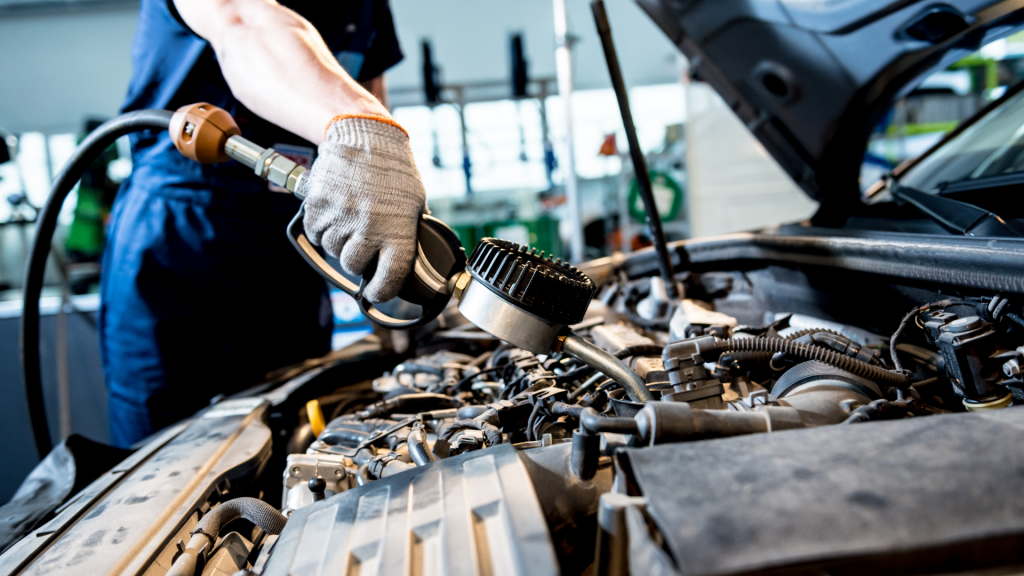
Engine oil change advice is more important than many people think. Changing your oil on time prevents wear, overheating and engine damage. This blog tells you when it's time to change your oil and why you shouldn't put it off.
Engine oil is much more than just lubricant. It makes all the moving parts in your engine work together smoothly, prevents overheating by dissipating heat, and keeps the engine internally clean by trapping dirt and combustion residue. But oil wears out. Over time, it loses its protective effect and becomes saturated with dirt. This can cause your engine to run heavier or even be damaged. Regular oil changes prevent this and keep your engine performing as it should.
Recommended oil change intervals vary by car and use, but a general guideline is every 10,000 to 15,000 kilometers or once a year. If you mainly drive short trips or in the city, your oil wears out faster due to many cold starts and low operating temperatures. In that case, it's smart to change more often. Modern cars with sensors usually indicate when it's time, but don't rely blindly on a light: also check the color, smell and oil level regularly yourself.
If you wait too long to change engine oil, it turns from a protective fluid into a threat to your engine. Old oil can become viscous, lose its lubricating properties and even form acids that corrode internal components. This can cause piston rings to seize, valves to burn or bearings to wear out. In the worst case, your engine seizes up. And that's something you can prevent with a simple oil change. So don't skimp on maintenance; invest in the health of your engine.
An oil change is relatively simple and, for the handy do-it-yourselfer, easy to do yourself. You need a sump plug wrench, sump tray, funnel and, of course, the right oil. Always choose a quality oil such as our Premium Performance 5W30. Don't forget to change the oil filter, too, because a lot of dirt accumulates in it. Want to make sure everything is done properly or don't feel like messing around? Then have it done by a specialist.
Each engine has its own requirements. Your car manual will tell you exactly what specifications your oil should have. Pay attention to viscosity (e.g. 5W30), but also to labels such as ACEA or API. Do you have a particulate filter or turbo? Then there are special oils that are better suited for this. In our webshop you can easily filter by vehicle type and engine characteristics. That way, you can be sure to choose the right oil.
Do you often drive in traffic jams, extreme temperatures or regularly tow a trailer? Then your engine is under more pressure and your oil wears out faster. Those who make many short trips must also pay extra attention. The engine does not always get hot enough, so moisture and dirt accumulate faster in the oil. So check the oil level regularly and, if necessary, change more often than the service booklet indicates. Better too early than too late.
Looking for the right oil? In our webshop you will find top quality motor oil for any type of vehicle. From synthetic to semi-synthetic variants, suitable for both gasoline and diesel engines. Want to know more about our range or need help? Then read here more about our service and expertise.
Regular engine oil changes are the foundation of reliable driving. It extends the life of your engine, prevents unexpected repairs and keeps your car fuel-efficient. Find more about our location and background here in Weert.
1. What happens if I am late with oil changes?
Old oil loses its lubricity, leading to additional wear, contamination and potentially serious engine damage.
2. How do I know which oil to use?
Always check your car's manual. It contains the correct viscosity (e.g. 5W30) and approval marks.
3. Can I do oil changes myself?
Yes, with the right tools and a little dexterity, you can do this yourself. Don't forget the oil filter.
4. Is more frequent changing bad for the engine?
No, rather the opposite. Regular changes keep your engine clean and in top condition.
5. What does an oil change cost on average?
It varies, but on average between €50 and €120 depending on oil and labor.
6. What signs indicate old oil?
Dark, viscous oil, increased oil consumption, engine noise and a lit oil lamp are obvious signs.
7. Is synthetic oil better than mineral oil?
Generally speaking, yes. Synthetic oil performs better in extreme temperatures and lasts longer.
8. Should I change oil more often on short trips?
Yes, short trips stress the oil more. This causes the oil to pollute faster and you have to change it sooner.